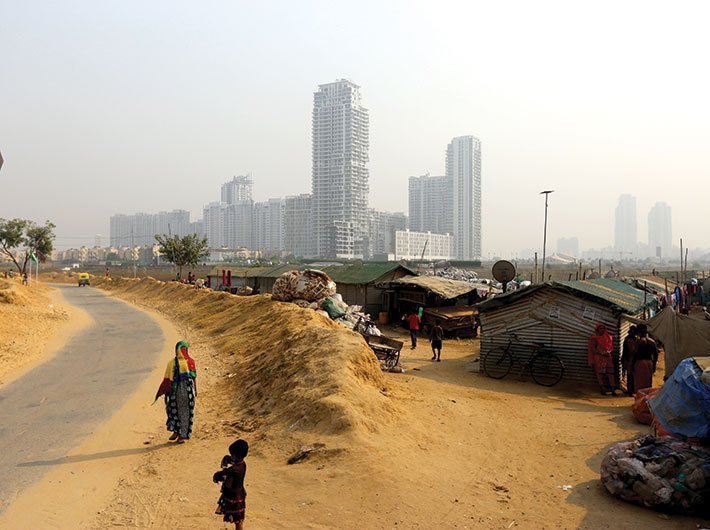One Indian in the billionaire club is equal in wealth to 57 lacs people in the other India
Oxfam India has this week released ‘India Supplement 2022’ with deserving caption ‘inequality kills’. The supplement discusses India’s governance structures that promote the accumulation of wealth by a few, while failing to provide safety netsto the rest of the population. The report is an eye opener on growing disparity and emergence of two Indias.
As per the report, 98 billionaires had the same wealth ($657 billion) as 55.5 crore people in India who constitute 40% of total population. To put in other way, one average billionaire in India has the wealth as owned by average 56.63 lakh people at the bottom of pyramid. One Indian in the India of billionaires is equal in wealth to 57 lakh people in the other India of those struggling for earning a living.
Also read: How inequality keeps rising amid pandemic – and is killing people
According to the report, while 84% of people saw their income decline in the beginning of pandemic and 12 crore jobs were lost, 80% billionaires increased their wealth, and three-fifth of billionaires increased their wealth by more than $1 billion. The number of billionaires grew from 102 to 142 in 2021, while in other India 20 crore Indians remained malnourished, as per the 2021 FAO report on the state of food security and nutrition in the world.
While billionaires added up further billions of dollars in wealth, and the second wealthiest billionaire in India multiplying its wealth 8 times in a pandemic year, the minimum wages was revised in 2020 by a meagre ₹2, from ₹176 to ₹178 per day despite recommendations of an expert committee to raise it to ₹375 per day and ₹9,750 per month. On top of it, as per the Oxfam report, the top 1,000 companies are not complying with even this minimum wage law.
Covid-19 which started as a health pandemic is now a full-blown economic crisis. A progressive taxation ensures that the tax burden is higher for the wealthy rather than with lower incomes. Wealthy should contribute to the burden on downtrodden in paying for basic necessities of life like shelter, food, education, transportation etc. The IMF supports the idea of levying higher taxes on the rich to ‘pay for theenormous cost of tackling the Covid-19 pandemic. Argentina has already done it with a levy of 5.25% on assets of the wealthiest Argentinians and raised funds to address pandemic costs.
On health, India is spending barely 3% of budget, while peers like Brazil spend more than 9%. On education too, India’s budget spend is around 3% while peers like Brazil spend 6%. Only 4% of rural children were able to study online on a regular basis during the pandemic. Sending a child to a private school in India is nine times costlier than studying in a government school, yet proportion of children studying in government school in India has declined to 45% in India, compared to 85% in USA and 90% in UK and 95% in Japan.
The report details the challenges in healthcare, education, and growing inequality in access to the facilities. It prescribes that there should be a universal acceptance of the problem and policy should focus on redistribution from superrich to generate resources for majority with emphasis on health, education, and social security.
A wealth tax can be levied in India. According to the Oxfam report, a 4% wealth tax on richest 98 families can take care of health budget for next two years or midday meal programme for next 17 years. Even 1% wealth tax can fund school education for 1 year or Ayushman Bharat (health insurance) for 7 years.
It is time policy makers take note of the magnitude of the crisis and initiate governance and tax reforms. As rightly said, poverty anywhere is a threat to prosperity everywhere. In fact, 50 millionaires from various countries in the world have urged in an open letter to tax them more in the light of covid crisis and its impact on economy. “Today, we the undersigned millionaires, ask our governments to raise taxes on people like us. Immediately. Substantially. Permanently……Tax us. Tax us. Tax us. It is the right choice. It is the only choice. Humanity ismore important than our money”.
Mishra is a policy analyst and columnist.
